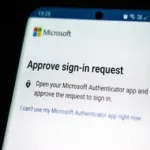Introduction
In today’s interconnected digital world, the importance of cybersecurity and online safety cannot be overstated. With cyber threats on the rise and personal information at risk, exercising digital discretion has become crucial. This guide aims to provide top tips and best practices for individuals to navigate the online landscape securely. By understanding cybersecurity threats, implementing robust safety measures, and utilizing the latest tools, users can enhance their digital security posture and protect their sensitive data. Join us on a journey to explore the realm of cybersecurity and learn how to stay safe and secure in an increasingly complex online environment.
Understanding Cybersecurity Threats
In the digital age, where connectivity is at an all-time high, understanding cybersecurity threats is paramount to safeguarding sensitive information and personal data. Cyber threats come in various forms, ranging from phishing attacks and malware to ransomware and social engineering tactics. It is crucial to stay informed about these threats to mitigate risks effectively.
Readers like you help support TIPDIGITECH. When you make a purchase using links on our site, we may earn an affiliate commission. Read More.

Common Cybersecurity Threats:
Here are some common cybersecurity threats to be aware of:
- Phishing Attacks:
Phishing attacks involve fraudulent attempts to obtain sensitive information, such as usernames, passwords, and credit card details, by disguising as a trustworthy entity in electronic communication. - Malware Infections:
Malware, short for malicious software, can infect your devices through malicious links, email attachments, or unsecured websites, compromising your data and privacy. - Ransomware Incidents:
Ransomware is a type of malware that encrypts files on your system, demanding a ransom payment for decryption. Falling victim to ransomware can lead to significant data loss and financial implications.
Protecting Against Cyber Threats:
To protect yourself against cybersecurity threats, follow these best practices:
- Keep Software Updated: Regularly update your operating system, antivirus software, and applications to patch vulnerabilities and defend against potential cyber attacks.
- Use Strong Passwords: Create complex passwords with a mix of letters, numbers, and special characters, and avoid using the same password across multiple accounts.
- Enable Two-Factor Authentication (2FA): Add an extra layer of security by enabling 2FA wherever possible to verify your identity and prevent unauthorized access.
By understanding the various cybersecurity threats and implementing robust security measures, you can exercise digital discretion and stay safe online. Remember, vigilance is key in protecting yourself against evolving cyber threats in the vast digital landscape.
Best Practices for Staying Safe Online
Strong Password Management
In the digital age, having strong passwords is crucial for protecting your online accounts. Create unique passwords for each account and consider using a password manager to securely store them. Avoid using easily guessable information like birthdays or names, and opt for a combination of letters, numbers, and special characters.
Enable Two-Factor Authentication (2FA)
Two-factor authentication adds an extra layer of security by requiring a second form of verification, such as a code sent to your phone, in addition to your password. Enable 2FA whenever possible for an added level of protection against unauthorized access.
Regular Software Updates
Keeping your software and operating systems up to date is vital for staying safe online. Developers often release patches and updates to fix security vulnerabilities that hackers could exploit. Set your devices to automatically install updates to ensure you have the latest protection.
Be Mindful of Phishing Attempts
Phishing is a common tactic used by cybercriminals to trick individuals into revealing sensitive information. Be cautious of emails, messages, or websites that request personal details or prompt you to click on suspicious links. Verify the source and legitimacy of any communication before responding.
Practice Safe Browsing Habits
When browsing the internet, be cautious of the websites you visit and the links you click on. Stick to secure websites with HTTPS encryption, avoid downloading files from untrusted sources, and be wary of pop-ups or ads that seem too good to be true.
By following these best practices for staying safe online, you can exercise digital discretion and protect yourself from cybersecurity threats. Remember that vigilance and proactive measures are key to safeguarding your digital presence in today’s interconnected world.
Importance of Digital Discretion
In today’s digital age, where our online activities are constantly being tracked and monitored, exercising digital discretion has become more critical than ever. Digital discretion refers to the mindful and cautious approach individuals should take when navigating the vast landscape of the internet. It involves being aware of the information we share online and the potential risks associated with oversharing. Here are some key aspects highlighting the importance of digital discretion:
Protecting Personal Privacy
One of the primary reasons to practice digital discretion is to safeguard personal privacy. With cyber threats such as data breaches and identity theft on the rise, it is essential to limit the amount of personal information shared online. By being selective about the details we reveal, such as birthdates, addresses, and contact numbers, we can reduce the likelihood of falling victim to malicious activities.
Preventing Cyber Attacks
Exercising digital discretion is crucial in preventing cyber attacks. Hackers and cybercriminals often exploit vulnerabilities in online behavior to gain unauthorized access to sensitive information. By practicing caution while clicking on links, downloading attachments, and sharing credentials, individuals can reduce the risk of falling prey to phishing scams and malware attacks.
Building Trust and Reputation
Maintaining digital discretion not only protects individuals from potential harm but also helps in building trust and a positive online reputation. Employers, clients, and colleagues often assess an individual’s online presence before engaging with them professionally. By being mindful of the content shared on social media and other platforms, individuals can present themselves in a favorable light and establish credibility in the digital space.
Understanding the importance of digital discretion is crucial for navigating the online world safely and responsibly. By implementing simple yet effective practices, individuals can protect their privacy, prevent cyber attacks, and enhance their digital reputation. remember, exercising digital discretion is not just about staying safe online; it’s about empowering yourself with the knowledge to make informed decisions in the digital realm.
Exercise Digital Discretion | 8 Tips to avoid phishing scams:
Cybersecurity Tools and Technologies
Antivirus Software
One of the essential cybersecurity tools for staying safe online is antivirus software. Antivirus programs help detect and remove malicious software, such as viruses, spyware, and ransomware, that can compromise your data and privacy. Popular antivirus software like Norton, McAfee, and Bitdefender provide real-time protection and regular updates to defend against evolving cyber threats.
Virtual Private Network (VPN)
A Virtual Private Network (VPN) is a key tool for enhancing online security and privacy. By encrypting your internet connection and masking your IP address, a VPN creates a secure tunnel for your online activities, preventing third parties from monitoring your browsing habits or accessing sensitive information. Trusted VPN services like ExpressVPN and NordVPN offer reliable protection for safeguarding data transmission.
Password Managers
Password managers are vital tools for practicing good cybersecurity hygiene and managing multiple online accounts securely. These tools generate complex, unique passwords for each account, store them in an encrypted database, and autofill login credentials to prevent password reuse and unauthorized access. Popular password managers like LastPass, Dashlane, and 1Password help users create and maintain strong passwords effortlessly.
Two-Factor Authentication (2FA)
Implementing Two-Factor Authentication (2FA) adds an extra layer of security to your online accounts by requiring a second form of verification besides your password. This method typically involves receiving a unique code via SMS, email, or authenticator app to confirm your identity during login attempts. Enabling 2FA on accounts for services like Google, Facebook, and banking platforms enhances overall cybersecurity protection.
In a digital landscape fraught with cyber threats, leveraging these cybersecurity tools and technologies can significantly bolster your online defenses and ensure a safer browsing experience. Remember, exercising digital discretion is key to safeguarding your personal information and staying one step ahead of potential cyber risks. Strive to stay informed about the latest cybersecurity trends and implement robust security measures to protect yourself in an increasingly interconnected world.
Frequently Asked Questions (FAQs)
1. What is cybersecurity, and why is it important?
Cybersecurity refers to the practice of protecting systems, networks, and data from digital attacks. It is essential because it helps prevent unauthorized access, data breaches, and cyber threats that can compromise sensitive information.
2. How can I enhance my online security?
You can enhance your online security by using strong, unique passwords, enabling two-factor authentication, keeping your devices and software updated, being cautious of phishing emails, and using reputable antivirus software.
3. What are some common cyber threats to be aware of?
Common cyber threats include malware, ransomware, phishing attacks, social engineering, and DDoS attacks. It is crucial to stay informed about these threats to protect yourself online.
4. How can I protect my personal information while browsing the internet?
To protect your personal information while browsing the internet, avoid sharing sensitive data on insecure websites, use a VPN for added security, be cautious of public Wi-Fi networks, and regularly review privacy settings on your accounts.
5. What should I do if I suspect a cybersecurity breach?
If you suspect a cybersecurity breach, immediately disconnect from the internet, run a security scan on your devices, change any compromised passwords, report the incident to the relevant authorities or IT department, and take steps to secure your accounts and data.
Conclusion
Practicing digital discretion is paramount in today’s cyber landscape to ensure a secure online experience. by understanding cybersecurity threats, implementing best practices, and utilizing the latest tools and technologies, individuals can significantly reduce the risk of falling victim to cybercrimes. it is crucial to prioritize privacy, data protection, and online safety in all digital interactions to safeguard personal information and prevent potential cyber attacks. staying informed, proactive, and vigilant is key to staying safe online and maintaining a secure digital presence for both personal and professional use. embracing a proactive approach to cybersecurity empowers individuals to navigate the digital world with confidence and peace of mind.








